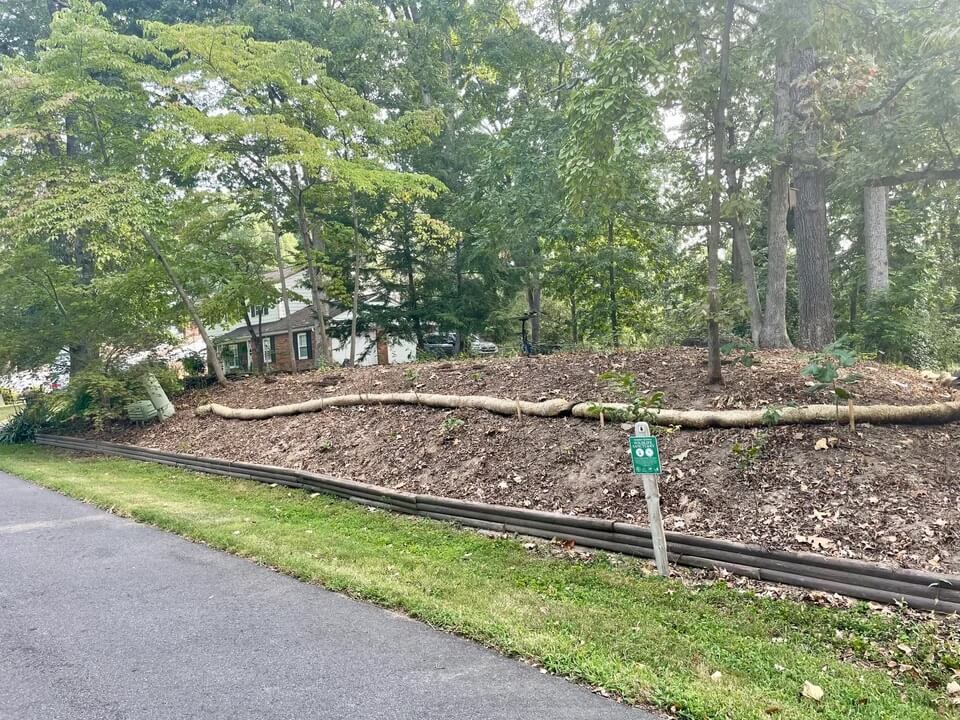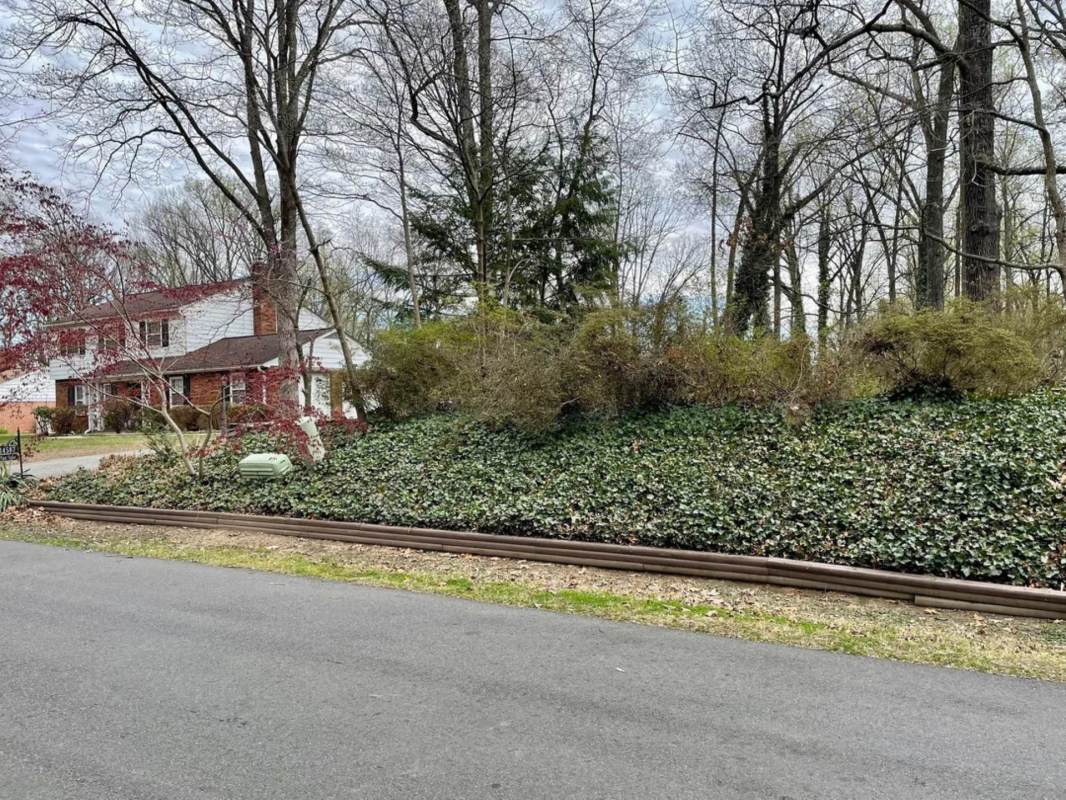One homeowner in Virginia shared their story on Reddit in the r/NativePlantGardening subreddit when they faced an uphill battle against a dreaded invasive species: English ivy.
Invasive species are plants or animals that are imported to a new area where they aren't native. There, they thrive — a little too well. They start to monopolize resources like food and sunlight, sometimes preying on or choking out other species, while multiplying much more quickly than the competition. Suddenly, that one species has taken over, destroying the balance of the ecosystem and driving native species to extinction.
English ivy is a notorious invasive species in the U.S. Because it clings to surfaces, many landscapers use it to decorate walls and fences or create a low, thick ground cover. However, it grows aggressively and can kill off other plants — even full-grown trees if given enough time.
This Redditor was facing that exact problem in their yard. "Spent 66+ hours removing English ivy that had taken over 1/4 acre of my property," they said.
The photos that accompanied their post told a harrowing tale. In the "before" images, ivy blanketed the slopes of their corner lot, bleeding out onto the road and entangling tree trunks.

Removing all that growth was no small task, they said in a comment. "I hand-pulled every single bit of it. Ended up being 48 30-gallon yard waste bags of ivy."
The "after" images showed healthy bare dirt with freshly planted seedlings in between the rescued trees.
"I laid down a compost blend and planted Carolina rose, shrubby St. John's wort, white wood aster, blue-stemmed goldenrod, woodland sunflower, black-eyed Susan, orange coneflower, swamp milkweed, columbine, woodland phlox, cardinal flower, and spotted beebalm — all plugs," said the original poster. According to them, they chose native plants "to benefit pollinators and wildlife."
"Looking forward to watching the native plants thrive; worth every bit of effort!" they said.
Commenters cheered the original poster on. "The impact this will have, removing the invasives and planting natives, is huge," one user said. "Good job!"
"Having done this by hand on a much smaller scale, I am seriously impressed by the job you did," said another Redditor.
Join our free newsletter for easy tips to save more, waste less, and help yourself while helping the planet.









